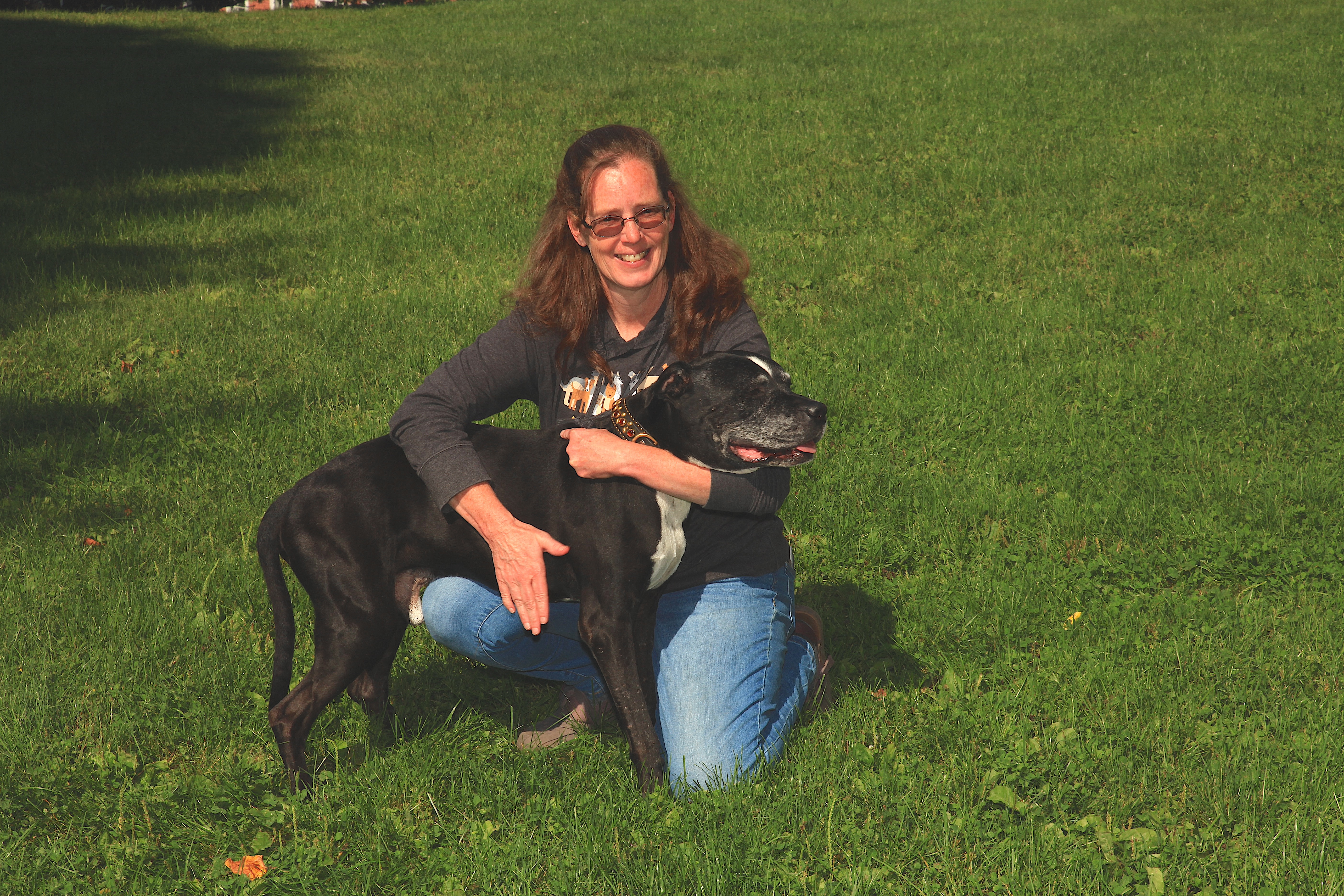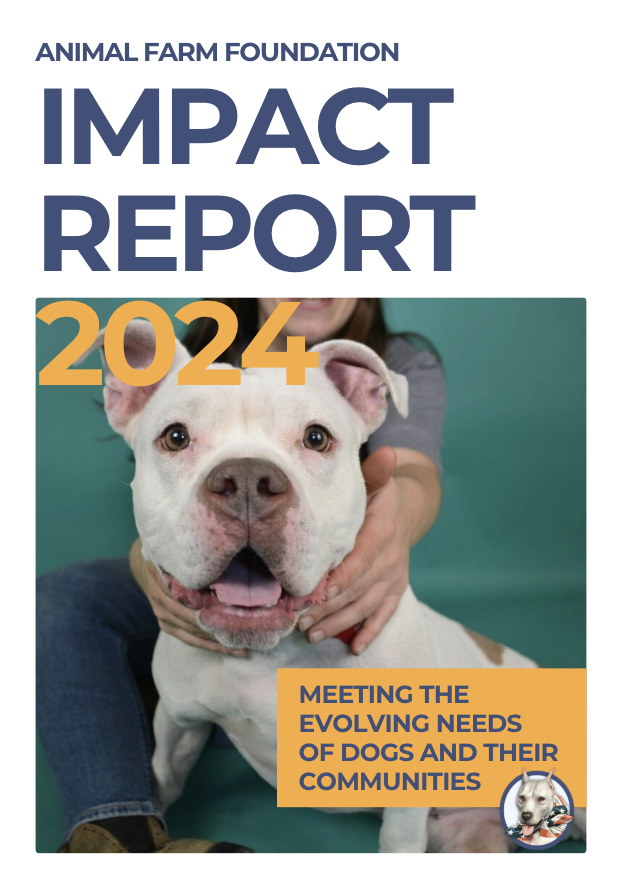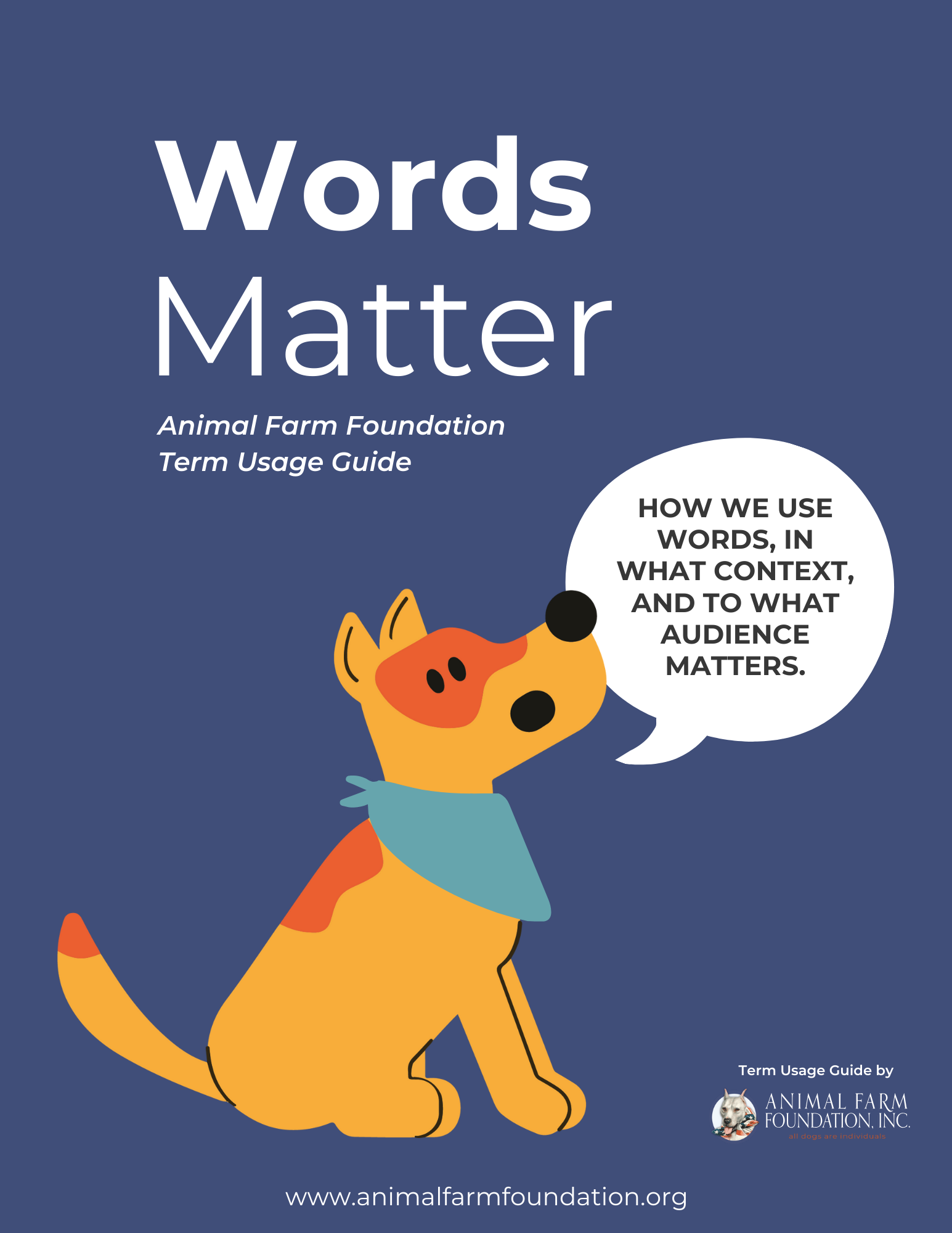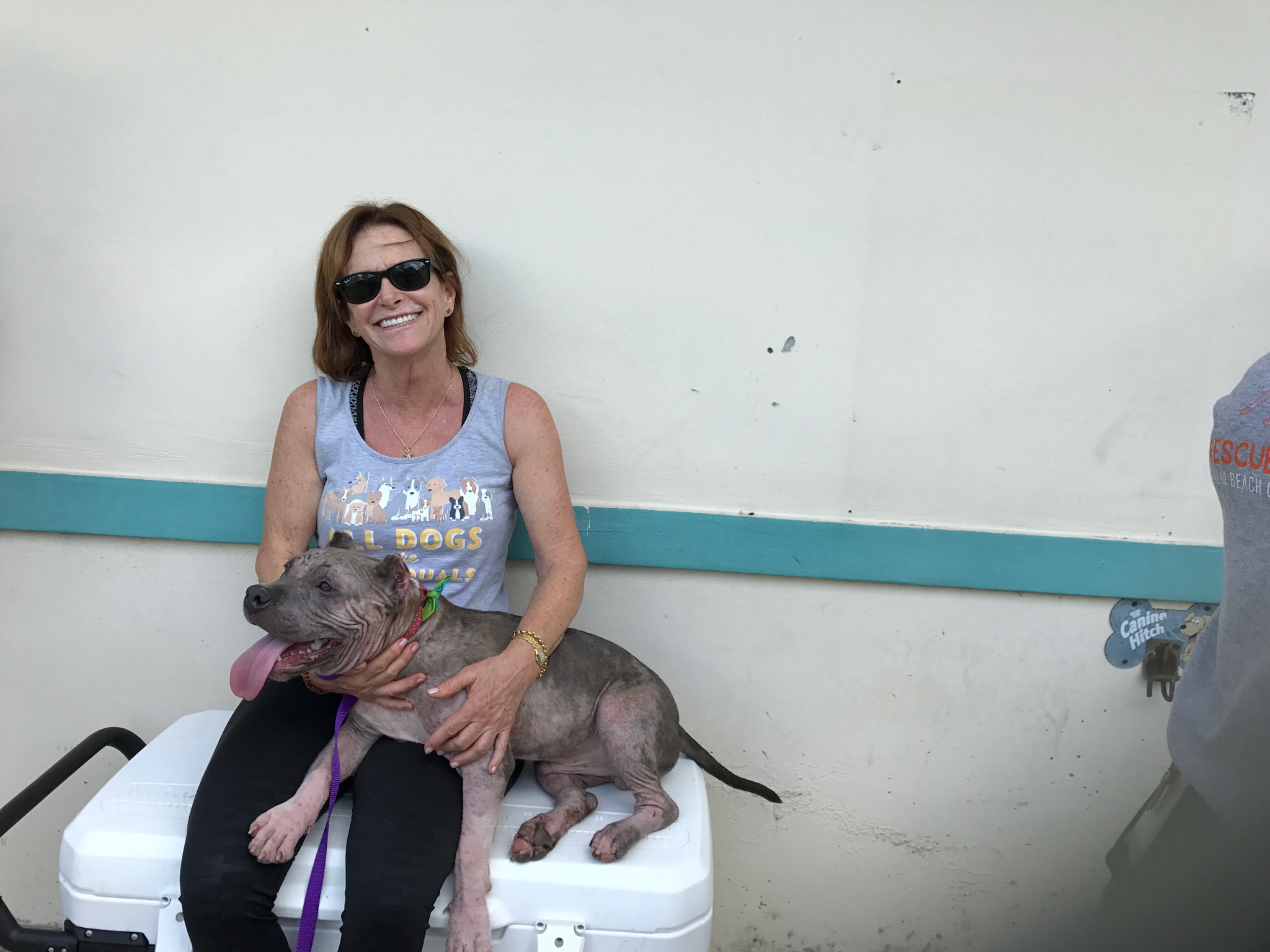One of the central goals of Animal Farm Foundation is for shelters (and, well, everyone really) to stop labeling dogs based on physical appearance. By now, you know all about the inaccuracy of visual breed identification. But what about the dogs whose breeds (purebred or mixed) are known? We know you’re wondering one thing:
“Isn’t it wrong to not tell adopters about a dog’s breed traits? Isn’t that holding back information they need?”
First, we’re not denying that breeds and breed traits exist. They do. But unless we view a dog as an individual, we won’t know which traits are actually there. How breed traits present themselves in dogs varies tremendously, particularly in mixed breed dogs of unknown origins, which happen to be the majority of dogs found in shelter systems.

That’s why a guess at how a breed trait may or may not manifest itself is not nearly as reliable as the information shelters gather by observing the dogs in their care.
If you observe breed traits, share them with the adopter. If you don’t observe them, don’t assume they are there.

Remember, you can’t apply breed traits to the “mixed breed” label, even if you know for certain which breeds make up that dog. Mixed breed dogs are not any breed of dog at all. There are no “mixed breed traits.”
Purebred dogs are bred from closed gene pools. Mixed breed dogs are not from closed or coherent gene pools and cannot be considered a member of any breed.

This may blow your mind, but dogs of mixed heritage have more in common genetically with all dogs, than any one breed in particular.
If you observe particular breed traits in a dog, it doesn’t mean that all of supposed traits of that breed will present themselves in that dog. Breed traits are one part of any individual dog. Breed traits don’t always present themselves in purebred dogs – because …..
(you totally know what we’re going to say here)
… all dogs are individuals.

You can’t discount socialization, training, genetics, environment, etc. Traits related to breed are not the whole dog. They are one component of a dog’s personality and behavior.
When we give equal or more weight to breed traits rather than focusing on what we’ve observed about a dog’s individual needs, we can hinder their chances at a successful match. To truly understand a dog, you need to look past the breed and see it as an individual.

We know this isn’t an easy thing to remember. Conventional thinking has wired our brains to assume that dogs of specific breed or breed mixes are going to behave a certain way. But, any of us who have dogs of our know that every dog has unique quirks that are particular to them and are independent of any presumed breed traits.
Make this your mantra:
“Who is this dog?”
Say it to yourself over and over again until it sticks.
Looking beyond breed labels and asking yourself who a dog is as an individual has so many positive results. Once you know you a dog is, you’ll have a better idea of the type of person that would make a good guardian for them. Think about it, if you only go by supposed breed traits and that dog doesn’t actually have any of those traits, you could place a dog in a home that’s in no way a good match.
Focus on personality. You’ll end up with a happier dog and a happier adopter.
If you’re still confused about how to shift your thinking from breed traits to individual personalities, we’ve got an eBook for that.






